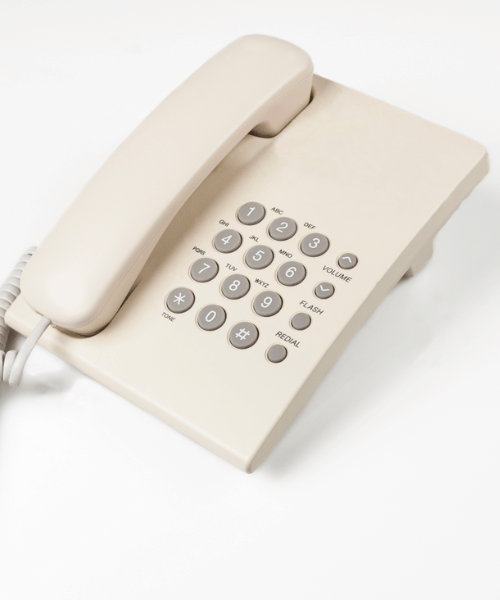How to Find Cash Buyers for Wholesaling Deals: Step-By-Step Guide
Wholesaling involves finding and securing a property at a discounted price, and then selling it to another investor for a higher price. One key element of successful wholesaling is finding cash buyers who are willing and able to close on the deal quickly. Here is a step-by-step guide to finding cash buyers for your wholesaling deals:
- Identify your target market:
Determine the types of properties and locations that your cash buyers are interested in. This will help you focus your search and increase the chances of making a successful sale. - Build your network:
Connect with other real estate professionals and investors who may have access to cash buyers. This may include real estate agents, property managers, and other investors. - Utilize online resources:
There are many online platforms and communities where real estate investors and cash buyers connect. Consider joining these groups and utilizing their resources to find potential buyers. - Use direct marketing techniques:
Reach out to potential cash buyers directly through email, social media, or direct mail. Be sure to clearly communicate the details of the property and the terms of the deal. - Follow up and nurture relationships:
Keep in touch with potential buyers and continue to provide them with new opportunities as they arise. Building a strong network of cash buyers will take time and effort, but it will be worth it in the long run.
By following these steps and being proactive in your search, you can increase your chances of finding cash buyers for your wholesaling deals.
Who Exactly are Cash Buyers
A cash buyer is a person or entity who has the financial resources to purchase a property in cash, with no financing. This could include an individual with a large amount of savings or an investor with access to significant liquidity, such as a private equity fund.
Cash buyers are typically attractive to sellers because they can close on a deal quickly and don't have to worry about the time and hassle of securing financing. They may also be willing to pay a premium for a property if it fits their investment criteria.
Cash buyers are typically looking for properties that are undervalued or have the potential for appreciation. They may be interested in a variety of property types, including single-family homes, multifamily properties, commercial buildings, and land.
In the real estate industry, cash buyers are often referred to as "all cash" buyers or "all cash offers." These terms refer to the fact that the buyer is able to close on the deal without the need for financing.

Benefits of working with Cash Buyers
There are several benefits to working with cash buyers in the real estate industry:
- Quick closing times:
Cash buyers have the financial resources to close on a deal quickly, which can be beneficial for sellers who need to move on from a property quickly. - No financing contingencies:
Cash buyers do not have to worry about securing financing, which means that there are no financing contingencies to hold up the deal. This can make the process of selling a property more straightforward and efficient. - Flexibility:
Cash buyers may consider a wider range of properties and may be open to creative financing solutions, such as owner financing or lease-to-own arrangements. - Potential for higher prices:
Because cash buyers do not have to worry about securing financing, they may pay a premium for a property if it fits their investment criteria. This can be beneficial for sellers looking to maximize their profits.
Overall, working with cash buyers can be a fast and efficient way to sell a property, and it can potentially result in a higher sale price. However, it's important to carefully evaluate the terms of any offer and make sure that it is in your best interests before committing to a deal.
Disadvantages of Cash Buyers
While working with cash buyers can have many benefits, there are also some potential disadvantages to consider:
- Limited pool of buyers:
Cash buyers are a relatively small segment of the market, which means that there may be fewer potential buyers to work with. This can make it more challenging to find a buyer for your property. - Higher expectations:
Because cash buyers have the financial resources to close on a deal quickly and may be willing to pay a premium for a property, they may have higher expectations for the condition and location of the property. This can make it more challenging to find a buyer who is willing to pay a fair price for a property that is in need of repairs or is located in a less desirable area. - Competition:
Because cash buyers are typically looking for undervalued properties with the potential for appreciation, you may face competition from other investors who are also looking for these types of deals. - Potential for low offers:
Some cash buyers may try to take advantage of the seller's need for a quick sale by making low offers. It's important to carefully evaluate any offer and make sure that it is in your best interests before committing to a deal.
Overall, while working with cash buyers can be a fast and efficient way to sell a property, it's important to carefully consider the potential advantages and disadvantages before making a decision.

Steps to Close a Real Estate Deal With a Cash Buyer?
The steps for closing a real estate deal with a cash buyer will vary depending on the specifics of the transaction and the laws and regulations in your area. However, here is a general outline of the process:
- Review and negotiate the terms of the sale:
This will involve discussing the price, closing date, and any other terms of the deal with the cash buyer. You may want to consult with a real estate attorney to ensure that the contract is fair and protects your interests. - Perform due diligence:
It's important to thoroughly research the property and ensure that it is in good condition and that there are no outstanding liens or other issues that could impact the sale. - Obtain any necessary inspections:
Depending on the type of property and the laws in your area, you may need to obtain inspections for things like termites, radon, or lead paint. - Order a title search:
This will involve researching the property's title history to ensure that it is clear and that there are no outstanding claims or liens on the property. - Review the closing documents:
Before the closing date, you will need to review the closing documents, which will include the purchase and sale agreement, title documents, and any other relevant documents. - Attend the closing:
On the closing date, you will need to attend the closing and sign the necessary documents to transfer ownership of the property to the cash buyer. - Transfer the keys:
Once the closing is complete, you will need to transfer the keys to the property to the cash buyer.
Overall, closing a real estate deal with a cash buyer requires careful planning and attention to detail. It's important to work with a team of professionals, including a real estate agent, attorney, and title company, to ensure that the process goes smoothly.
Conclusion
In conclusion, working with cash buyers can be a fast and efficient way to sell a property. However, it's important to carefully consider the potential advantages and disadvantages before making a decision.
To close a deal with a cash buyer, you will need to review and negotiate the terms of the sale, perform due diligence, obtain any necessary inspections, review the closing documents, attend the closing, and transfer the keys to the property. Working with a team of professionals, including a real estate agent, attorney, and title company, can help ensure that the process goes smoothly.
Real estate is the best investment in the world because it is the only thing they're not making any more of.

Anwaar-Ul-Haq
Unlock hidden opportunities with ReSkipTracing's advanced skip tracing tools.














